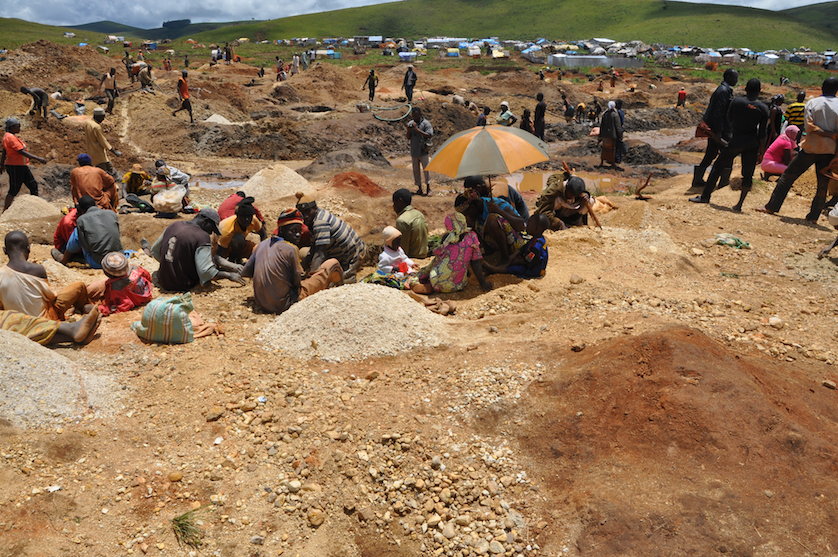
By Alex Kirby
The future of coal has come under scrutiny from a perhaps unlikely source – the head of the organisation representing wealthy nations that relied on coal for 32% of electricity generation last year.
Angel Gurría, secretary-general of the Organisation for Economic Co-operation and Development (OECD), said the scale of new investments in “unabated” coal-fired electricity generation − where greenhouse gases are emitted directly to the atmosphere − posed the most urgent threat to the Earth’s climate.
Speaking in London, he said governments should be sceptical about the benefits of coal for their citizens. They should rethink the role of coal in energy supply, and conduct a more rigorous evaluation of its true costs.
Environmental costs
With prices failing to fully account for the environmental, health and financial costs of coal, many of the coal plants being built today might have to be shut down before the end of their economic lifetimes.
The OECD, founded to stimulate economic progress and world trade, has 34 members drawn from the richest and most powerful industrialised countries.
But Gurría, in a passage that will hearten many developing countries in the approach to the UN climate change negotiations in Paris in November/December this year, said that if poorer nations could not afford low-carbon alternatives, then richer countries should find the money to close the cost gap.
Without new mitigation measures, coal generation is projected to emit more than 500 billion tonnes of CO2 between now and 2050 − eating up around half the remaining carbon budget that scientists say is consistent with keeping a global temperature rise below 2°C.
In any case, Dr Gurría said, countries’ contributions to emissions reductions after 2020 are not consistent with a 2°C pathway. He said the carbon clock was ticking and the Paris COP21 climate conference must give a clear and credible signal that governments are determined to go for a higher level of ambition.
“Calling something a process doesn’t guarantee an outcome,” he said. “We have been in a process for over 20 years and, so far, the commitments simply don’t add up.”
Continued investment in coal is one of many “misalignments” between climate goals and countries’ policies in other domains, Dr Gurría said.
Action undermined
A report by the OECD, its specialised Nuclear Energy Agency, the International Energy Agency and the International Transport Forum says policy misalignments undermine climate action in areas from tax to trade, electricity market regulation and land use.
The report says two-thirds of global energy investments still go into fossil fuels, 50% of agricultural subsidies in OECD countries harm the climate, and various tax provisions encourage fossil fuel production and use.
This “policy incoherence”, as the report describes it, limits the effectiveness of countries’ climate change efforts, and increases the cost of the transition to a low-carbon economy.
Dr Gurría urged governments to consider what needed to be done to resolve such misalignments, starting with a demand that each ministry should regularly report on which of its policies run counter to desirable climate results.
And he urged all countries to take the problem seriously: “The size of the carbon budget that we can emit consistent with 2 degrees depends on how big a risk you are prepared to take to meet that goal or to wind up on a higher temperature pathway.
“But one fact is clear – we are currently emitting some 38 billion tonnes of CO2 p.a. and this will exhaust that budget at an alarming rate. Furthermore, the 2 degrees goal relies on a carbon budget which only provides for a 66% chance of meeting the target.
“If we want a lower level of risk, we should be even more ambitious. After all, we’re betting the planet. This is the ‘cheerful recklessness’ towards our common home lamented by the Pope in his recent climate change encyclical.
“Two degrees already implies costly change. But we’re currently on course for around 3-5 degrees. We continue to be on a collision course with nature. As we continue to emit, the risks are becoming increasingly unpredictable and uninsurable.”
Go renewable
And one clear solution is renewable energy, Dr Gurría continued: “we already have commercial alternatives to coal-fired power generation, in contrast to heavy industries like cement and steel which don’t and which pose a major technical challenge.
“The fact that 60% of total power plant investments since 2000 have been in low-carbon technologies illustrates the point. Depending on the region, cost-competitive renewables include onshore wind, biomass and hydro-based generation, solar and geothermal power.
“Some challenges remain, but the bottom line is that low-carbon options can and should play a much greater role in energy supply. Their costs are still decreasing, some much faster than others, and the challenges of integrating new renewable energy are being overcome.”











Hi! This post couldn’t be written any better!
Reading through this post reminds mme of my previous room mate!
He always kept chatting about this. I willl forward this
write-up to him. Fairly certain he will have a goiod read.
Thank you for sharing!